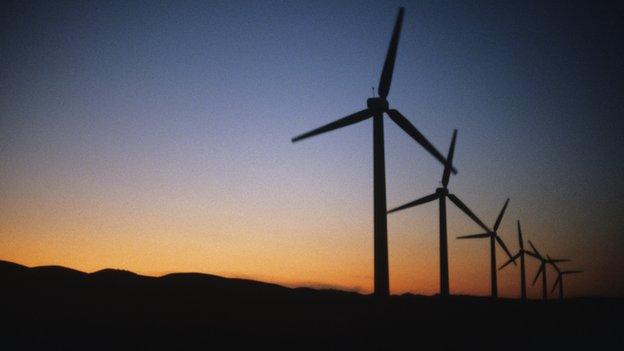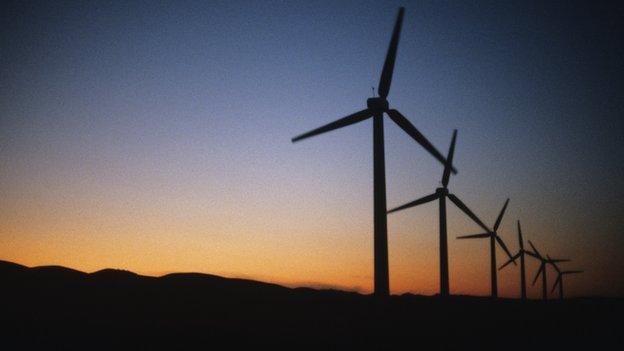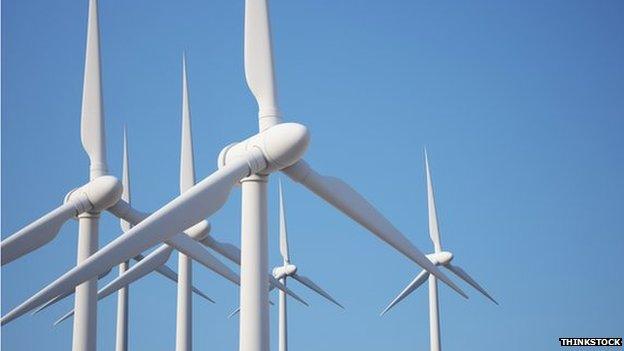Northern Ireland wind energy subsidy to end year early
- Published

The subsidy system for renewable energy is being radically scaled back by the Conservative government
The current subsidy system for on-shore wind energy in Northern Ireland is set to end next April, a year earlier than planned.
Enterprise Minister Jonathan Bell has started a two-week consultation on the proposal.
He had previously said he would maintain the subsidy system until 2017.
However, he said that changes in UK policy now mean that keeping it until 2017 would impose extra costs on consumers.
The subsidy system for renewable energy is being radically scaled back by the Conservative government.
Energy policy is devolved to Stormont, but decisions taken at Westminster are having a knock-on effect.
Under the current UK system all onshore wind energy projects are guaranteed a subsidy.
That system is ending in 2016, to be replaced by one in which there is UK-wide competition for subsidy payments.
Renewable development will take place within the UK wherever it is most economic.
In June, Mr Bell said he wanted to "make it clear" that in Northern Ireland the current system would continue until 2017.
However, he said that position has changed following discussion with the Department of Energy and Climate Change.
He said it has become clear that if Northern Ireland went its own way the cost impact would be "borne solely by the relatively small number of NI consumers rather than by all consumers across the UK".
Small scale wind schemes can still qualify for the subsidy but only if they have planning permission, property agreements and grid connection agreements in place.
Larger "cluster connection" schemes have until 30 October to get all necessary agreements in place.
This means that any schemes which are at a preliminary stage have no guarantee of getting a subsidy and may not proceed.
The Ulster Farmers Union has criticised the decision to hold a two-week consultation on the proposal.
It said the time period was "inadequate in light of the implications for the small scale renewables sector in Northern Ireland".
- Published30 June 2015

- Published27 March 2015
